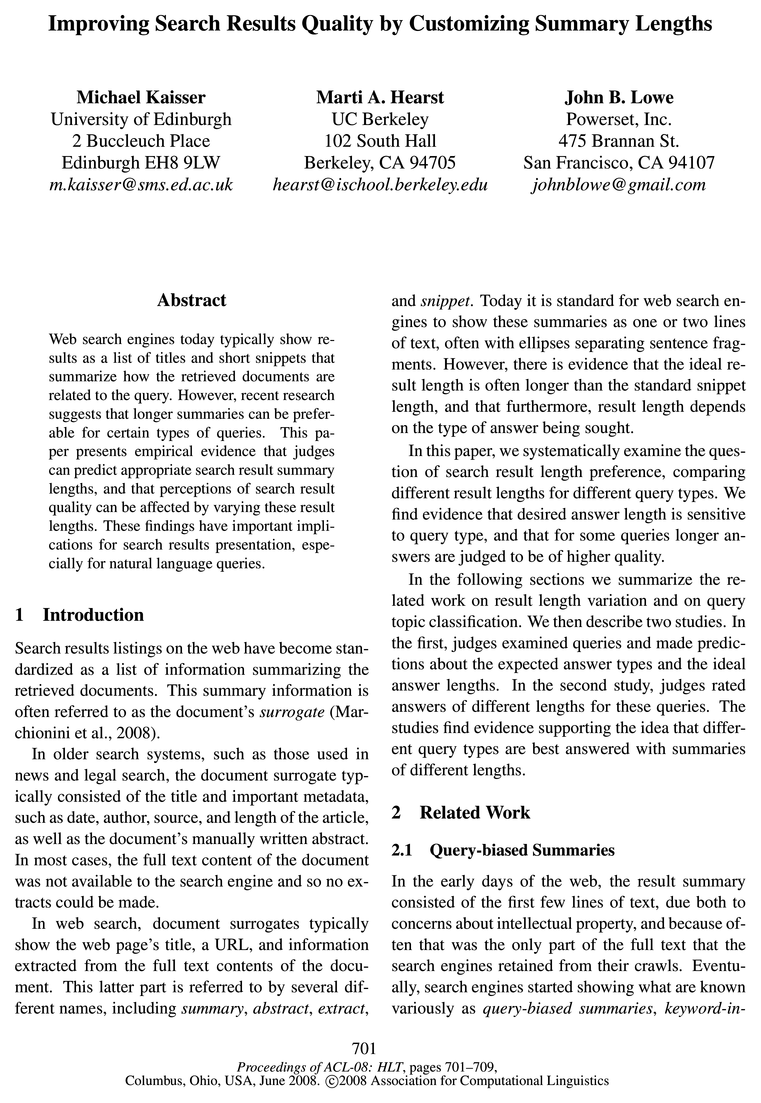Article Structure
Abstract
Web search engines today typically show results as a list of titles and short snippets that summarize how the retrieved documents are related to the query.
Introduction
Search results listings on the web have become standardized as a list of information summarizing the retrieved documents.
Related Work
2.1 Query-biased Summaries
Study Goals
Related work suggests that longer results are preferable, but not for all query types.
Conclusions and Future Work
Our studies suggest that different queries are best served with different response lengths (Experiment 1), and that for a subset of especially clear queries, human judges can predict the preferred result lengths (Experiment 2).
Topics
natural language
- These findings have important implications for search results presentation, especially for natural language queries.Page 1, “Abstract”
- There are a disproportionally large number of natural language queries in this set compared with query sets from typical keyword engines.Page 4, “Study Goals”
- Such queries are often complete questions and are sometimes grammatical fragments (e.g., “date of next US election”) and so are likely to be amenable to interesting natural language processing algorithms, which is an area of in-Page 4, “Study Goals”
- This is substantially longer than the current average for web search query, which was approximately 2.8 in 2005 (Jansen et al., 2007); this is due to the existence of natural language queries.Page 5, “Study Goals”
See all papers in Proc. ACL 2008 that mention natural language.
See all papers in Proc. ACL that mention natural language.
Back to top.
question answering
- The candidate answer types are often drawn from the types of questions that have appeared in the TREC Question Answering track (Voorhees, 2003).Page 3, “Related Work”
- These categories include answer types used in question answering research as well as (to better capture the diverse nature of web queries) several more general response types such as Advice and General Information.Page 5, “Study Goals”
- For classifying according to type, as discussed above, most automated query classification for web logs have been based on the topic of the query rather than on the intended result type, but the question answering literature has intensively investigated how to predict appropriate answer types.Page 8, “Conclusions and Future Work”
See all papers in Proc. ACL 2008 that mention question answering.
See all papers in Proc. ACL that mention question answering.
Back to top.

